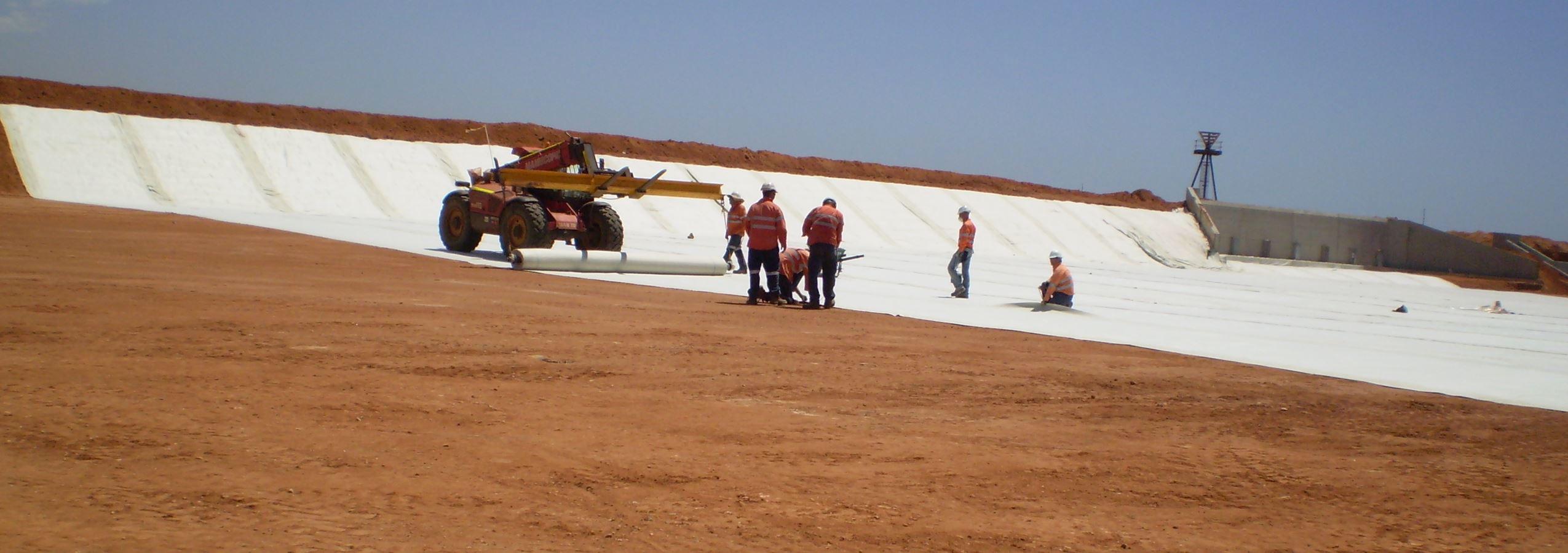Lets firstly look at what is a geotextile? Geotextiles are a permeable synthetic textile material, made from either polypropylene or polyester. Geotextiles have had a long history of use in filtration, drainage, separation and protection applications in a range of civil, coastal and environmental engineering structures.
When used in several different applications, mainly associated with soil, there are 5 key functions that geotextiles perform:
Separation
Reinforcement
Filtration
Protection
Drainage
Geotextile fabrics have long been used in the construction and landscaping industries and making a mark by stabilising the ground, improving a sites drainage and filtration, separating aggregates and spreading imposed loads. Ascertaining the right geotextile fabric for your project means understanding the differences between them – a key one being whether they are woven or nonwoven.
What is a woven Geotextile?
As you might surmise, woven geotextiles are manufactured by blending and weaving fibres together on a loom, forming one uniform length. The result is a product that is not only strong, which makes them a great fit for applications like road construction and car parks, but also remarkably well equipped to handle ground stabilisation problems. They are relatively impermeable and don’t offer the best separation against fines. woven geotextiles will resist UV degradation and be suitable for long-term applications.
woven geotextiles are measured by tensile strength and strain, which is the resistance a material has to breaking under tension.
What is a nonwoven Geotextile ?
Nonwoven geotextiles are produced by entangling fibres, long or short together, either through needle punching or other methods. Some additional thermal treatment is then applied to further improve the strength of the geotextile. Due to this manufacturing process and their permeable properties, nonwoven geotextiles are generally best used in applications of drainage, separation, filtration and protection. Non-woven fabrics are referred to by weight (i.e. gsm/grams per square metre) and are more felt-like in feel and appearance.
Woven or nonwoven geotextiles have a variety of uses, whether you require ground stabilisation, separation of sub-base layers, aggregates and other materials, or drainage and filtration, there is now a geotextile fabric that’s right for your project. Make sure you select the right one each time with.
Not Sure Which Geotextile You Need? Please don’t hesitate to give us a call, our team of experts are always ready to assist you with your projects.

